
Name : Fina Hidayati Tams
Email : fina.tams@gmail.com
Country of origin : Indonesia
Year of study : 6 th
Country of Exchange : Switzerland
City of exchange : Geneva
Institute of exchange : Hopitaux Universitaire de Geneva
Language of exchange : French
Period of exchange : 1 st – 30 th June, 2008
The speciality : Cardiology
IFMSA
International Medical Student’s Association (IFMSA) is an international organization of medical students. It has National Member Organization (NMO) in each country for example SwiMSA in Switzerland. Its activities divided into six areas conducted by its six standing committees e.g. Standing Committee on Medical Education (SCOME), Standing Committee on Public Health (SCOPH), Standing Committee on Professional Exchange (SCOPE), Standing Committee on Research Exchange (SCORE), Standing Committee on Refugees and Peace (SCORP) and Standing Committee on Reproductive Health including AIDS (SCORA).
SCOPE IFMSA
SCOPE IFMSA is one of IFMSA standing committee which facilitate medical students to exchange and follow the clerkship which is held by other faculty of medicine outside the country d e.g. sending medical students abroad (outgoing) or receiving our country (incoming). There are many countries participated in this program both for unilateral (incoming or outgoing) or bilateral (incoming and outgoing) contract. Hundreds of contract per year are conducted including the contracts between Indonesia through Center for Indonesian Medical Students’ Activities (CIMSA) and Switzerland through SwimSA.
CIMSA
Center for Indonesian Medical Students’ Activities (CIMSA) is a national medical students’ organization in Indonesia established in 2001 and a member of IFMSA. CIMSA facilitates SCOPE IFMSA program in Indonesia.
SwiMSA
Switzerland Medical Students’ Associations (SwiMSA) is one of IFMSA NMO. SwiMSA is an active NMO and has continuous professional exchange programs. It provides the programs in university hospital of Geneva, Bern, Basel, Zurich and Lausanne.
Geneva
Geneva is the second most populous city in Switzerland. It’s the French speaking part of Switzerland. Geneva has 441,000 inhabitants, 38.7% of them are foreigners, from 180 different countries. Geneva is widely regarded as a global city , mainly due to the presence of numerous international organizations , including the headquarters of many of the agencies of the numerous international organizations , including the headquarters of many of the agencies of the United Nations including World Health Organization (WHO).
Hôpitaux Universitaires de Genéva (HUG)
This university hospital serves the public service for local people and national referral even international referral. It has 22,000 surgery per year and 85 organ transplantation. There are 8,138 workers in HUG including 1,229 doctors. The entire workers are 49% Switzerland and the rest are foreigners from 90 nationalities. It is a big, clean, tidy and modern hospital. The health workers there are friendly. The hospital has sophisticated medical equipments to support the diagnostic and treatment of its patients.

Cardiology Department
Cardiology department of HUG is one of the best cardiology center in Switzerland. It received national and international referral. Furthermore, this department has international collaboration research.
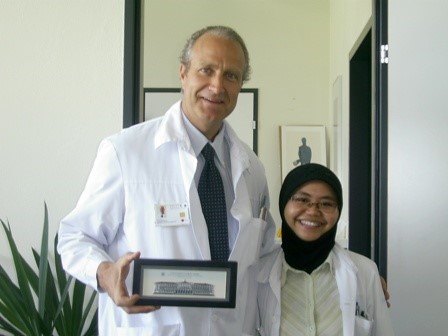
My picture with Prof. François Mach,Head of Cardiology Dept, HUG
The head of cardiology department is Prof. François Mach.
6-AL Ward
Hospitalization of adult patients with heart diseases is usually provided in 6-AL ward. It has around 20 lits available for patients. The cases commonly admitted in this ward are coronary heart diseases. However, there are also cases of arytmias including supraventricular tachycardia, atrial flutters and others, cardiomyopathies, myocardites, pericardites, etc.
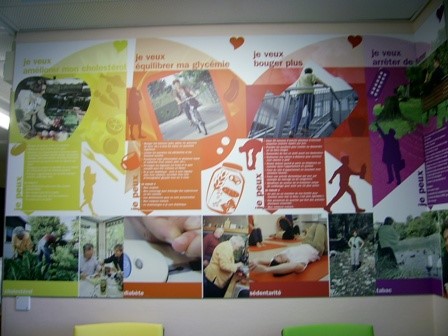
The ward of 6-AL has high mobility of patients. The patient are sometimes hospitalized one or two days in order to have a furthering medical studies such as echocardiography, coronography, etc and also for the treatment. So, the nurses were busy enough there.
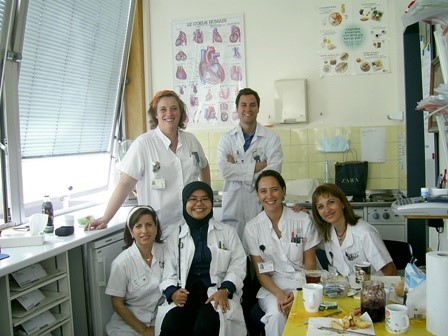
My picture with dr. Nicolas Shultz (one of my supervisors in Cardiology Dept. HUG) and the nurses of 6-AL ward, HUG
Supervisor
During my internship in HUG, I had two supervisors. They are dr. Agnes Dithiseim, a 3rd year resident in internal medicine and dr. Nicolas Schutz, a resident in cardiology department.
dr. Agnes Dithiseim
Her days starts at 8.00 with a meeting, discussing (in internal medicine, hand over is at 7.45) every day on other topic or with journal club. Then she spent the morning, doing visit (ward round), doing paper work and seeing new patients. Depending of the ward, she had a radiological meeting in the early afternoon, and then again seeing the patient and paper work. we had the coronarography meeting at 16:30, where we could review all the coronarography of the day. And when she had the time, she tried to assist to the procedures in the afternoon.
She said something about me. She said : “Fina did a good elective, showed a good interest in cardiology, and was very motivated, curious, good initiative. Good luck for your career!”
dr. Nicolas Schutz
His work starts at 8h00 with some administrative obligation (and a coffee time). It’s followed with the medical visit of the patients with our chief during 1 hour approximately. Then we have to make the admission for the day (3 to 5 new patients) and when possible we try to assist to specialized exams (pace maker implantation, electrophysiology study). In the afternoon, we have a last visit with the nurse only (at 17h00). Finally we have again paper work until the end of the day.
He gave me a testimonial : “Fina is a very dynamics, curious, and interesting student. She was very appreciated from the nurses, the doctors and the patients. We are sure that she will have a great career.”

My task
I was an observer of adult cardiology ward (6-AL) and supervised by two supervisors (residence doctor) in HUG. I was the only medical student in that ward. I don’t really have any tasks to do. However, I have many choices to do what I want to study.
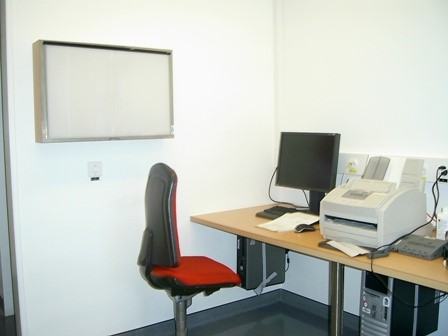
Daily Schedule
8h00-8h30 : Come to the hospital
8h30-12h15 : Work
12h15-13h00/14h00 : Lunch time
13h00/14h00-17h00 : Work
My daily works began with the conference in the morning whether lecture, case presentation, journal club or patient hand over. Thursday clinical conference is special because the department invited guest speaker from outside HUG such as the speaker from University of Zurich, Children’s Heart Center Linz Austria, and Cardiology Center of Annecy, France. After that, I observed the medical records to find the patients which have interesting cases I wanted to study. I had patient visit with my supervisors including doing the physical examination at around 9am.
After finishing the daily patient visit, I went to see the examination such as exercise test, echocardiography, coronography, etc. I also went to the block to see pace maker implantation, pacemaker replacement, posing defibrillator and even a cardio-thoraxic surgery. I also saw the ablation of cardiac arytmia, valvuloplasty, cardiac version, etc.
If I have finished my work, I can go home earlier. However, I have double internship so, after working in the hospital, I went to World Health Organizations (WHO) to have my internship there.
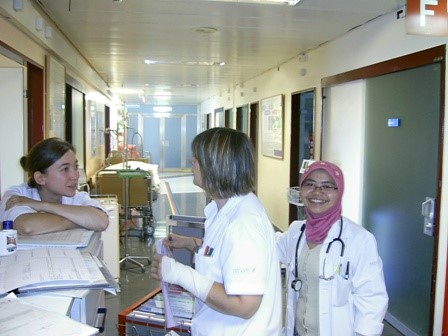
Teaching and Learning activities
I had various topics of the general lectures on internal medicine and cardiology almost every day. I also had a self study on the patient in 6-AL ward, and search the information I didn’t know directly from internet and if I didn’t get the information I need, then I asked my supervisor to explain it to me. Here, I couldn’t do clinical intervention such as inserting i.v. line, taking blood samples, injection, inserting nasogastric, etc. All the procedures were done by the nurses.
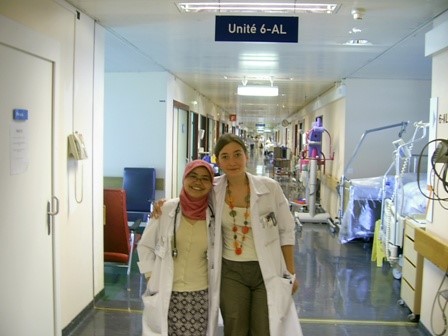
Furthering medical studies
HUG has sophisticated medical instrument to help the doctors diagnose the patients. I saw lots of further medical studies on cardiology both for the diagnostic and event the treatment. We had simple test such as exercise/thread mill test until coronary imaging for diagnostic and posing the balloon or stent for the treatment of coronary hearth diseases. We also did cardiac Magnetic Resonance Imaging (MRI) and Positron Emission Tomography (PET)/ Spatial Positron Emission Computerized Tomography (SPECT).
Social life in HUG
I have been in Geneva a month before my clerkship in HUG. I had already had many friends in Geneva both Indonesian and also my intern friend in WHO. I didn’t feel lonely and has various activities in the weekend. I spent my weekend to go sightseeing around Geneva or just at home with my host family because they used to invite friends to come to our apartment.
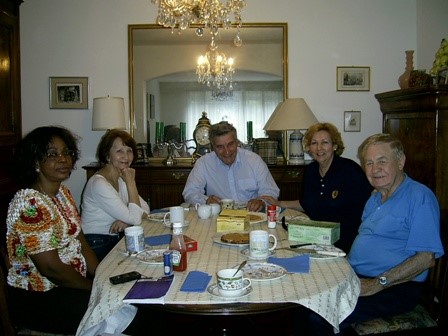
My SwiMSA Intern friend
Actually, there were only two students who had clinical exchange in HUG on June 2008. They are me and a medical student from Tunisia named Sakr. SwiMSA also arranged a social program for us although not in every weekends. It gave us the opportunity to make a friend.
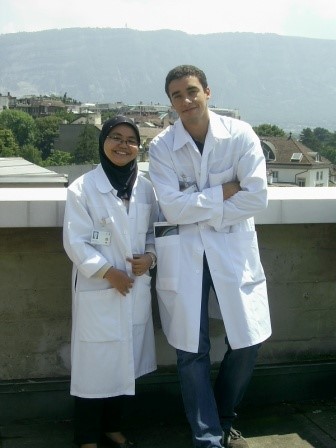
Lunch time
I usually have lunch together with the resident doctors in our department. We ate together in the restaurant in the 10 fl of the hospital.
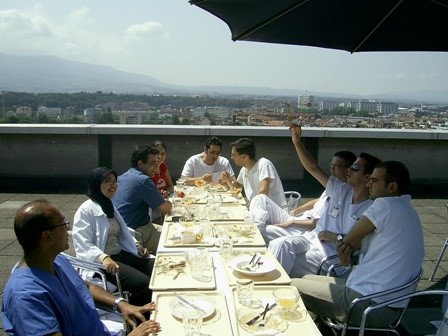
Obstacle
I had difficulty regarding to the language since most patients speak French. I only understood a few words of French so that was really a big challenge for me. However, at least I knew some words which I could use to ask the patient and to do physical examination. My host family was very kind to help me translate some medical words for history taking into French. However, most of the doctors spoke English and they explained in English if I asked them some questions. Since Geneva is international city, so many languages are spoken. But French is the most spoken language in the hospital.
Fortunately I was placed in the ward with high mobility of patient admission and similar cases. I didn’t interact with the patient much unless the cases were very interesting. I preferred see the further medical studies of the patients. Sometimes, I could see rare cases I never saw in Indonesia. Those were really interesting.
Conclusion
It was really unforgettable moment during my clerkship in HUG. I could learn more about cardiology while I still can make friends and explore the city. HUG has good modern medical equipment to support furthering medical studies, more sophisticated than in Indonesia. I could also interact with patients who speak other languages than me although it’s very limited interaction. In overall, HUG is convenient place to study, has friendly nurses and doctors.
Recommendation
- May be the interns should have some tasks so it can increase the responsibility.
- It’s also a good idea to provide standard logbook so the supervisor can easily monitor the students’ activities and it meets the standards in order to consider this clinical exchange as academic credit for elective post.
- I think it’s needed more social programmes from SwiMSA. I was fortunate because I have stayed a month in Geneva. I already had friends so I didn’t feel bored.
- I would like to encourage medical student to have clinical exchange program to gain the experience, friends and networking.
More information
Contact Detail :
fina.tams@gmail.com
IFMSA website :
www.ifmsa.org
SCOPE IFMSA:
www.ifmsa.net/public
SwiMSA
http://www.swimsa.ch/index.php
HUG
Address : rue Micheli-du-Crest 24 CH-1211 Genèva 14
http://www.hug-ge.ch/
http://www.cardiology-geneva.ch/

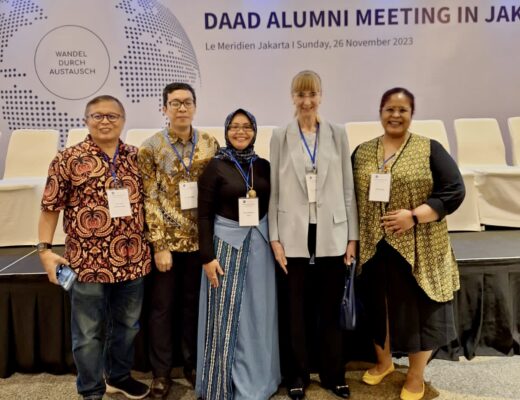

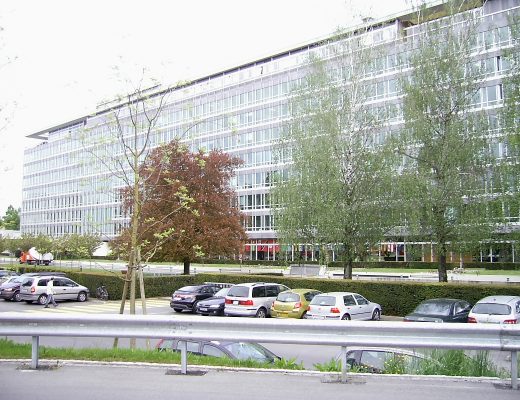
No Comments